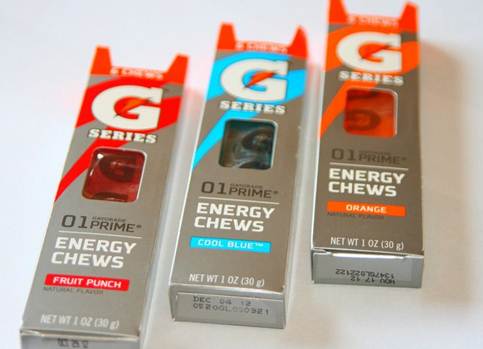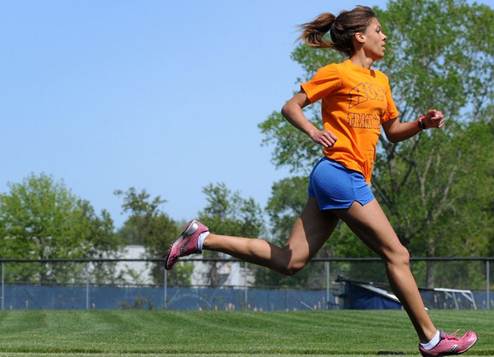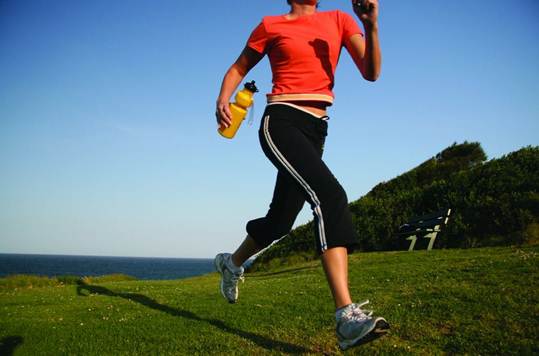Confused about what to eat to perform at your best?
Here’s how to power your way through your races
Bleary-eyed morning workouts, long Sunday runs - training
for a race takes graft, focus and commitment.
But achieving your personal best isn’t just about training
hard. What, when and how much you eat can have a dramatic effect on your
stamina, performance and recovery. It will help you focus better and avoid
injury, too. In fact, it’s the key to optimum performance.
Good nutrition should be an integral part of your training
program, but when it comes to race week, eating the right foods at the right
time can boost performance, whatever your distance. A balanced training diet,
cooked from scratch with fresh, natural ingredients, is always the best policy.
However, sometimes commercial sports nutrition products can be a convenient and
practical solution to help give you the edge, especially for longer training
runs and away races.

Good nutrition
should be an integral part of your training program, but when it comes to race
week, eating the right foods at the right time can boost performance, whatever
your distance.
Until recently, sports nutrition was almost exclusively
about providing carbohydrate and hydration, often in the form of a disgustingly
unpalatable gloopy. The good news for fitness enthusiasts is that, over the
past few years, the market has grown enormously and become increasingly
sophisticated. Vast amounts of cash invested into the science behind sports
nutrition has brought a deeper understanding of the type of fuel athletes
really need.
Greater choice
Now, runners are spoilt for choice with well-targeted and
better-tailored products for use before, during and post-exercise. With fewer
artificial flavorings, sweeteners and additives, taste and consistency has
improved. Convenience and ease-of-use has become integral to product design,
with new state-of-the-art, portioned packaging, tailored doses to suit your
weight and products ranging from concentrated drinks to gels and energy chews.
The old-style sticky gloopy is history, and products are now easier to swallow
- just what’s needed for running.
It’s not just about carbohydrates anymore, either. Once
thought of as solely for body builders, protein is now recognized as essential
for endurance athletes, too. A better understanding of the dangers of
hyponatremia (water intoxication) and the causes behind cramping has led to an
influx of electrolyte- based products. You’ll even find all-in-one solutions
containing carbohydrate, protein, fluid and electrolytes, often with added
extras such as caffeine, vitamins or nitrates.

Convenience and
ease-of-use has become integral to product design, with new state-of-the-art,
portioned packaging, tailored doses to suit your weight and products ranging
from concentrated drinks to gels and energy chews.
Find your fix
So how to pick the right product for you? First, you need to
understand why you need to fuel your body for running, and when the optimum
time to do it is.
There are just four basic ingredients the body needs to fuel
a long run; carbohydrate for energy, a little protein to help your muscles
perform, then fluid and electrolytes to prevent dehydration. Other
performance-boosting nutrients, such as caffeine or nitrates can be seen as
‘optional extras’.
Carbohydrate is the most efficient source of energy for
endurance. Stored in your muscles and liver in the form of glycogen, you can
store enough to keep you going for about 90 minutes of exercise. After this,
your body resorts to burning fat reserves for energy. At best, this can reduce
both speed and efficiency; at worst, you ‘hit the wall’.
Consuming carbohydrates during races longer than 90 minutes
will top up your glycogen stores as they become depleted, but supercharging
your muscles by eating carbs prior to the race will ensure full stores at the
start line. Post-race, consuming carbohydrates will replenish your body’s
glycogen levels and promote muscle recovery.

First, you need to
understand why you need to fuel your body for running, and when the optimum
time to do it is.
You need protein for healthy muscle function, and just a
very small amount before, during and after exercise will keep your muscles
strong and help repair damaged muscle fiber. Water and electrolytes (sodium, potassium,
magnesium and calcium) maintain your body’s balance and keep it functioning
properly. You need to replace these minerals as you sweat, particularly for
runs that last an hour or more.
Your tolerance for different foods while under stress varies
according to your size, sweat rate and intensity of effort, so find out what
suits you, then develop your own nutrition strategy for before, during and
after the race. Sports nutrition products contain different combinations of
carbs, protein, water and electrolytes - with many brands adding vitamins,
minerals or caffeine to the mix - so you need to work out what will best suit
your training and race-day needs.
When you want to move at speed, you also need to consider
portability. Energy gels, chews or sweets are basically sports drinks in
concentrated form - they’re easy to carry, but often need to be taken with
water. Sports drinks in powder or tablet form also need added water - allowing
you to choose your Ideal level of concentration - but they’re bulkier to carry.
Follow the advice in the table (right), to find the ideal strategy to boost
your performance.

Sports drinks in
powder or tablet form also need added water - allowing you to choose your Ideal
level of concentration - but they’re bulkier to carry.